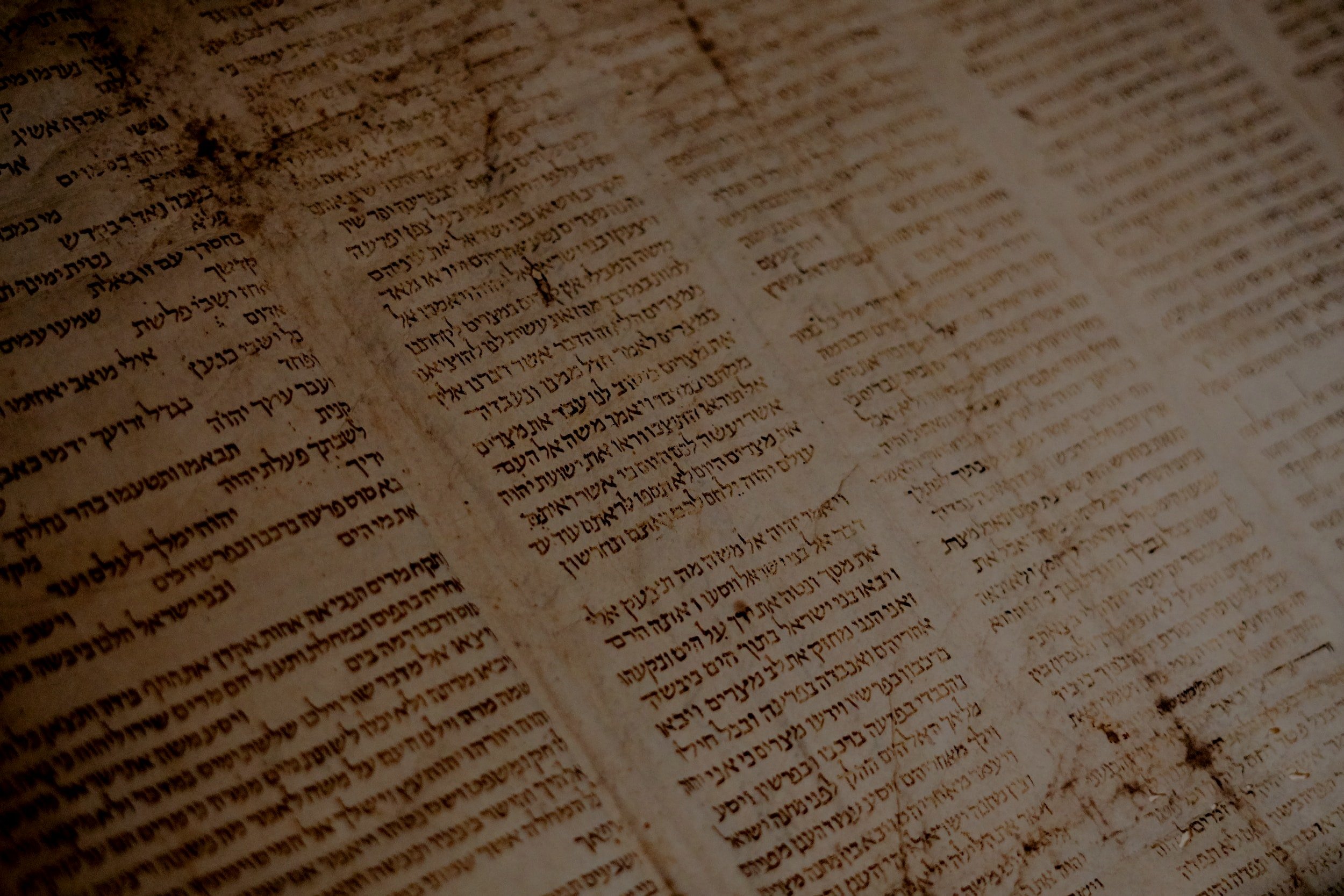
Inspiring Fixed Prayer
By Jeff Mendelsohn
Prayer forms a central pillar of religious Jewish life, yet every prayer service faces an immediate tension. Jews pray with a set liturgy at specific times of the day, every day, and are at the same time called upon to pray with devout concentration and meaningful intentionality. What are the sources of this tension and how might we resolve them?
The Talmud, in Mesechet Megillah, considers whether the book of Esther, commonly referred to as the Megillah, must be read in order to fulfill one’s obligation. In answering affirmatively, the Gemara cites a baraita detailing certain prayers that also must be read in order—the Shema, the Hallel and the Amidah (also referred to as the “Shemoneh Esreh” or simply as “Tefillah”).
The Gemara states:
תָּנָא: וְכֵן בְּהַלֵּל, וְכֵן בִּקְרִיאַת שְׁמַע וּבִתְפִלָּה.
The Sages taught in a baraita: This halakha of not reading out of order applies also to Hallel, and also to the recitation of Shema, and also to the Amida prayer, meaning that to fulfill one’s obligation he must recite the text of each of these in order. (Megillah 17a per Sefaria).
The Gemara goes on to consider the source for the rule that the prayers of the Amidah must be said in the specific order they are written.
תְּפִלָּה מְנָא לַן? דְּתַנְיָא: שִׁמְעוֹן הַפָּקוֹלִי הִסְדִּיר שְׁמוֹנֶה עֶשְׂרֵה בְּרָכוֹת לִפְנֵי רַבָּן גַּמְלִיאֵל עַל הַסֵּדֶר בְּיַבְנֶה. אָמַר רַבִּי יוֹחָנָן, וְאָמְרִי לַהּ בְּמַתְנִיתָא תָּנָא: מֵאָה וְעֶשְׂרִים זְקֵנִים, וּבָהֶם כַּמָּה נְבִיאִים, תִּיקְּנוּ שְׁמוֹנֶה עֶשְׂרֵה בְּרָכוֹת עַל הַסֵּדֶר.
The baraita cited previously taught that the halakha against reciting a text out of order applies to the Amida prayer as well. The Gemara asks: From where do we derive this? As it is taught in a baraita: Shimon HaPakuli arranged the eighteen blessings of the Amida prayer before Rabban Gamliel in their fixed order in Yavne, which indicates that there is a specific order to these blessings that must not be changed. Rabbi Yoḥanan said, and some say that it was taught in a baraita: A hundred and twenty Elders, i.e., the Men of the Great Assembly, and among them several prophets, established the eighteen blessings of the Amida in their fixed order, which also shows that the order of these blessings may not be changed. (Megillah 17b per Sefaria).
Shimon HaPakuli, shortly after the destruction of the Temple in 70 CE, redacted the Amidah prayers and presented them to Rabban Gamliel of Yavne, “in their order.” The rabbis understood the reference to their order to mean that the Amidah must be recited in the specific order in which they were originally arranged. The practice remains today that if someone skips a prayer during the Amidah, he or she should return to the prayer skipped and continue again from that point forward.
Why was it considered necessary to script our prayers in this way? Rambam, in Hilchot Tefillah, 1:1-4, explains that after the first destruction of the Temple and the exile of Jews to Babylon, people began to forget Hebrew and mix in elements of Persian and Greek language. People lost their ability to pray in Hebrew or to express themselves properly in prayer. It is also possible that Ezra was concerned that not only Persian and Greek language slipped into the Jewish lexicon, but also Perisan and Greek ideas.
Rambam states: “When Ezra and his court saw this, they established eighteen blessings in sequence.” The writing of the Amidah is thus often attributed to the Men of the Great Assembly that helped re-establish Jewish practice in the post-First Temple period.
Rambam offers an ecumenical argument in favor of these set prayers:
“Thus, the prayers could be set in the mouths of everyone. They could learn them quickly and the prayers of those unable to express themselves would be as complete as the prayers of the most eloquent.”
After stating that the Amidah must be said in the specific order established first by Ezra and his court, and later by Shimon HaPakuli, the Gemara in Megillah goes to some length to explain why one prayer logically follows the other, but that is an interesting topic for another time.
This might be the end of the matter, except for the words of Rabbi Shimon in Pirkei Avot. In Chapter 2, he states:
רַבִּי שִׁמְעוֹן אוֹמֵר, הֱוֵי זָהִיר בִּקְרִיאַת שְׁמַע וּבַתְּפִלָּה. וּכְשֶׁאַתָּה מִתְפַּלֵּל, אַל תַּעַשׂ תְּפִלָּתְךָ קֶבַע, אֶלָּא רַחֲמִים וְתַחֲנוּנִים לִפְנֵי הַמָּקוֹם בָּרוּךְ הוּא
“Rabbi Shimon said: Be meticulous with the reading of Shema and the [Amidah] Prayer, And when you pray, do not make your prayer keva, but a plea for mercy and grace before God…” (Koren Pirkei Avot 2015, translation by Rabbi Lord Jonathan Sacks).
Similarly, in Mesechet Brachot (28b), Rabbi Eliezer states:
רַבִּי אֱלִיעֶזֶר אוֹמֵר: הָעוֹשֶׂה תְּפִלָּתוֹ קֶבַע — אֵין תְּפִלָּתוֹ תַּחֲנוּנִים.
Rabbi Eliezer says: One whose prayer is fixed (keva), his prayer is not supplication…
The operative word I want to focus on here is keva and how we understand its implications for the Gemara’s insistence that we recite a group of set prayers, in a fixed order, three times a day.
The word keva is often understood to mean something that is fixed or set. Rabbi Sacks translates keva as a “fixed routine.” The Bunim Ethics from Sinai (Feldheim 1964) translates it as “a fixed, set matter.” As such, keva seems to contradict the clear ruling of the Gemara that we should recite a fixed order of prayers. We must therefore dig deeper into the meaning of keva for us to understand how to approach prayer.
The Rambam understands keva to mean a burden or chore that one wishes to cast off, something simply to get out of the way. He goes on to say in Hilchot Tefillah (4:15) that “any prayer uttered without mental concentration is not prayer. If a service has been recited without such concentration, it must be recited again devoutly.”
Thus, we see that it is not enough simply to say the prayers, even if done so in their proper order. In fact, Rambam makes clear that it’s not just WHAT we say but also HOW we say it that matters. To be “meticulous” in our prayers we follow the set order exactly, but to avoid keva, we must pray with special devotion and intention, with meaning and purpose.
Rabbi Samson Rafael Hirsch explains that, just as Shema is directed to the people of Israel, similarly the words of the Amidah, though addressed to Hashem, “are designed to be taken to the heart of the worshipper so that their content may become part of his heart and mind…he cannot expect that his prayer should perform this service for him if he performs it as keva as an appointed routine act which was imposed upon him by some outside source and which can be properly discharged by rote recitation.”
For prayer to be effective it must impact the person reciting the prayers. If the words of worship are approached as something just to say and get through, without meaning or intention, their impact on us is greatly diminished. Prayer is a moment of opportunity to be seized with the full intention of our minds and hearts.
Yet, we know that maintaining that level of kevanah, intentionality, is very difficult. Rambam, fully aware of this challenge, recommends that we pause before prayer, collect our thoughts, and consider before Whom we stand. Prayer should be said thoughtfully and beseechingly, and once done, we should again pause to let the impact sink in. (Hilchot Tefillah 4:15).
Even then, not every prayer will impact us equally at any given moment. Keeping our minds free of extraneous thoughts is challenging. Our minds wander easily and the perception of our needs varies from day to day.
The Hafetz Chayim addressed this challenge in a short parable. He tells the story of a young man devoted to Torah study. His wife, a baker, makes bagels and cakes to sell in the village. She learns that the army will be passing through town soon and sees a great business opportunity. She bakes much more than her usual amount and convinces her husband to take a break from his studies and sell the baked goods to the soldiers who would undoubtedly be hungry on their march.
The young man takes the cakes and bagels out to sell, but rather than buy them, the soldiers simply seize the baked goods and pay nothing. His spirits dashed, he returns home and tells his wife what happened. She says nothing and carries on. The young man then asks if she can bake something for him to eat. At this, she becomes enraged. The young man is taken aback, and says he does not understand, figuring her anger would have come upon learning that the business venture failed. She replied: “For what the soldiers did I could not blame you—they are stronger than you. But when everyone snatched at the bagels, why couldn’t you seize at least two for yourself, so that you would not have something to eat!”
As related in the Bunim Ethics from Sinai, the Hafetz Chayim reasoned thus:
“So…is our situation in regard to prayer. All sorts of influences are making claims on our mind; they seize and snatch our thoughts, our attention, and divert us in all directions. Perhaps we cannot keep our consciousness all to ourselves, properly concentrated on the purposes of prayer. But, if it is a free-for-all, at least let us seize something for ourselves. Let us at least have concentrated moments of prayer, so that they be free of distractions.”
We thus see that our prayers are both fixed and fluid at the same time. We must say a prescribed script at specified times of day so that we articulate our thoughts properly and equally. The prayers of the rich and the poor, of the wise and the unlearned, are identical, and we come together as one community with one voice.
Yet simply saying the words is not enough. They must impact us, and for that to happen, we must put not only our mouths, but also our hearts and minds, to work. And for those of us who are not yet able to concentrate fully, to clear our minds and make room for true contemplation, at least we can seize a few moments of transcendence, of concentration. Even those short moments of prayer can impact us deeply.
